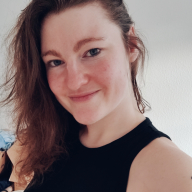
Jana W.🔸
Bio
Participation5
Background experience in several areas, ranging from UX, software design and development to event organisation, community building, and politics.
- Head of Staff Support (HR) at EV Ops
- Former Co-President Volt Hessen (regional team of Volt Europa (political party))
See my LinkedIn.
You can best reach me at jana@ev.org
All views are my own.
Posts 3
Comments6
It will be more challenging for those "have-nots" in the future AI world. Not only their labour will not be valued by the economy, their family roles will also be eroded: [...]
I think I mostly agree with this and would like to add a question / some confusion I personally have with these future scenarios:
A lot of (left-ish) spaces talk about how humans are used for their labor and how they'd like us to be "free from work" while also opposing progress in AI because "it means people lose their job". For the same reason the first two points by Acemoglu you mention as a response seem short-sighted to me (or maybe I'm missing something).
- Tax reforms to favour employment rather than automation
- Foster labour voice for better power balance at the companies
In a world where AI is able to take over broad parts of work and prosperity for all is an attainable goal, shouldn't our main goals be:
- Find a new definition of meaning for humans (this relates back to OPs point about eroding all roles)
- One reason why people seem to oppose "unemployment through AI" seems to be that a lot of people derive meaning from their work (even if they don't like their jobs, it's at least something)
- Ensure sufficient redistribution of wealth (e.g. through UBI)
I'm curious to hear what I'm missing and also looking forward to some more resources on this!
I find the genre Hopepunk incredibly inspiring. Vox article about Hopepunk;
Here's a Spotify playlist, which has some of the best songs of the genre.
Highlighting a couple of my favorites:
- Be Afraid by Jason Isbell and the 400 Unit (Spotify): "Be afraid, be very afraid. And then do it anyway" (AI alignment, anyone?)
- Matches by Guante, Dem Atlas (Spotify): "The reason that I'm not a nihilist is that some day I wanna live like in Star Trek. And I know that we'll never build starships until we tackle poverty, war, and hardship."
- Guante is my personal favorite overall! His album A Love Song, a Death Rattle, a Battle (Spotify) gets me through any motivation slump.
- Be More Kind by Frank Turner (Spotify): "In a world that has decided that it's going to lose it's mind, be more kind, my friends. Try to be more kind."
many others work jobs for which they can't easily take time off for our event
Potential counter-argument(s):
- some EA organisations count this as work-time anyway, so it might not matter;
- in general, some organisations have a self-development time-budget where people are allowed/supposed to take up to X days a year for conferences and workshops (usually 5, I think), so might be worth looking into;
I think this kind of post is so important and should get highlighted on the front page every time shortly before an EAG. Just so people get reminded that this is a thing.
For a more personal addition:
I found EAG and now the days afterwards really difficult to navigate. It was my first (I've been to one EAGx before). I knew I was supposed to schedule 1:1s, but didn't, because I didn't really have a goal for EAG. I have a job that I like and want to keep doing for a bit. There was no particular question I had for anyone. I just wanted to be there, see a few talks, see some friends again, that's about it.
At the same time, I felt so much pressure to "make the most of it". There's so much talk about what "the perfect amount of 1:1s" is, that "EAG is an incredible opportunity", almost like it's a "once-in-a-lifetime"-thing. I even got mocked by a few people for not scheduling more 1:1s. And it's just... really anxiety-inducing.
Really liked the idea of having a space where people are explicitly invited to sit with a stranger (and think this should be improved upon in the future), because it's a nice addition if you don't have a talk to attend but also didn't schedule something else in.
So my takeaway is: It's okay that people have wildly different experiences at EAG. It's okay to not know what exactly you want to get out of the conference. And it's okay to just have a chill time there.
Had the same problem, just found it here
https://forum.effectivealtruism.org/posts/fPNaxqe2YjXEmvJaf/differences-in-impact-interactive-exercise

The Onion Test for Personal and Institutional Honesty seems to be a related read (for people wanting to read smth similar with other words).